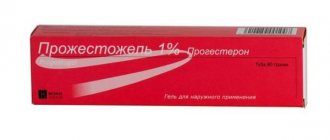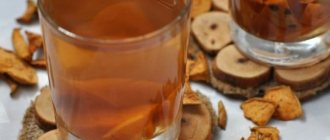Nursing mothers often suffer from a runny nose, which is accompanied by mucous discharge, swelling of the nasal cavity, difficulty breathing, and sneezing. If rhinitis occurs against the background of a respiratory infection of viral origin, then other signs appear.
So a woman’s body temperature rises, chills and sore throat occur. To eliminate such symptoms, it is recommended to use medications. However, many nasal drops are prohibited during breastfeeding. Therefore, before taking any drug, you must obtain a doctor's approval.
For a mild runny nose with snot and slight congestion, home treatment can be done. If symptoms persist for 2–3 days, then it is better to visit a doctor who will select effective medications.
Specific signs
The causative agents of acute infections of the respiratory organs are a variety of pathogenic microorganisms that are localized in different parts of the body. A runny nose is caused by rhinoviruses, which colonize the inner lining of the maxillary sinuses. As a result, mucous discharge, swelling of the inner membrane, and difficulty in nasal breathing appear.
With the help of rhinitis, the body tries to get rid of viruses. The mucus that is secreted during a runny nose has disinfecting properties, binds harmful microorganisms, allergens, and pollution and washes them out. Nasal agents are not intended to eliminate rhinitis; they reduce swelling of the inner lining of the nose and the volume of secretions. However, you can get rid of the disease only after complete recovery.
Stages of a runny nose of infectious origin:
- A large volume of liquid mucus that is constantly secreted from the nose. This symptom indicates damage to the inner membrane by the virus. In the first phase, the patient often sneezes, the white membrane of the eyes turns red, and tear fluid is released.
- Thick mucus. On the 3rd day, the discharge becomes thicker with a whitish or yellowish tint.
According to doctors, rhinitis lasts 7 days, during which time the immune system fights viruses. Usually, after this time, the infection subsides and the patient recovers, but if this does not happen, it is recommended to visit an otolaryngologist.
Useful tips for a nursing mother
A runny nose due to ARVI requires complex therapy:
- Bed rest. To make it easier to bear the disease and recover faster, the patient should stay in bed for 2-3 days. This way she will be able to avoid complications.
- Abundance of liquid. The patient is recommended to drink more warm liquids (tea, filtered water, compotes, etc.). It cleanses the body of toxic substances (components of viruses).
- Ventilation. It is recommended to ventilate the bedroom daily and monitor the humidity level. If this indicator is below 60%, then the nasal cavity dries out, the volume of secretions decreases, and the likelihood of infectious diseases increases. To increase humidity, special climate control devices (humidifiers) are used.
- Antipyretic drugs. Lactating women are not recommended to take medications at temperatures up to 38.5°. For breastfeeding, Paracetamol and Ibuprofen are allowed to be used. They reduce fever, eliminate muscle pain and other symptoms of acute respiratory infections. Ibuprofen reduces the inflammatory process.

It is not worth stopping natural feeding during treatment of rhinitis, since the baby, along with milk, receives antibodies that protect it from viruses. At high temperatures, the baby needs to be fed more often to prevent lactostasis (milk stagnation).
Breastfeeding and mother’s runny nose – is it compatible?
Despite the apparent danger of acquiring viral infection pathogens through milk, real circumstances reveal events of the opposite plan. The milk nutritional mass that the child consumes during the mother’s illness produces important antibodies that are responsible for the body’s immune response against the virus. These antibodies serve a dual purpose - they increase the resistance of the mother’s body and are laid down in the form of immune memory in the baby.
In other words, a runny nose in a nursing mother is not a reason to transfer the baby to artificial feeding unless a number of the following negative conditions are present:
- the disease, expressed by rhinitis, does not receive treatment, and therefore progresses;
- antibiotics or other drugs were prescribed with a note in the annotation about the inadmissibility of using the drug for hepatitis B;
- a runny nose is classified as an accompaniment of a disease incompatible with the continuation of natural feeding.

If a normal runny nose is not accompanied by other alarming symptoms (except for a rise in temperature, which is considered normal), then feeding must continue on the same schedule, which is very important to observe for the prevention of lactostasis. General measures to protect a baby from infection do not differ from the rules for preventing any respiratory diseases in contact with a sick person
This:
- frequent walks in the fresh air;
- an individual, well-ventilated room where the child will be most of the time;
- daily wet cleaning;
- hardening of the baby, according to the pediatrician’s recommendations.
Since the mother will have to treat a cold with constant contact with the child, she must wear disposable medical masks for the entire time that the newborn is nearby. According to the instructions, the mask is changed at least three times a day.
Vasoconstrictor drops
To relieve nasal congestion, a nursing mother may be prescribed medications with a vasoconstrictor effect. They destroy harmful microorganisms, moisturize the mucous membrane, constrict blood vessels and restore breathing through the nose, as a result, sleep is normalized and well-being improves.
It is acceptable to use the following nasal drops during lactation:
- Naphthyzine based on naphazoline.
- Galazolin, Tizin with xylometazoline.
- Nazivin based on oxymetazoline.
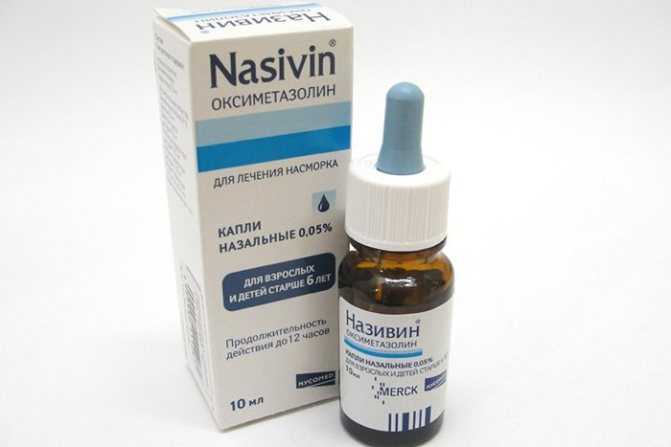
According to doctors, Naphthyzin and other drugs whose active component is naphazoline are not recommended for use by lactating women. This is due to the fact that when milk production is low, it provokes a negative reaction in the newborn: it disrupts the tone of the vessels of the nasal cavity, provokes irritability, and heart failure. With prolonged use, the mother's milk production decreases.
Doctors suggest using safer vasoconstrictor nasal drops:
- Nazivin, Nazol, Noxprey based on oxymatezoline. The concentration of the active substance in milk is low, but with prolonged use, the likelihood of increased blood pressure and heart rhythm disturbances in mother and baby increases. To avoid side effects, a lactating woman should follow the dosage and use the medicine for no longer than 3 days.
- Nazole, containing phenylephrine, eliminates swelling of the mucous membrane and makes breathing easier through the nose. This drug is allowed to be used even by children under 12 months. The likelihood of side effects is low if a woman adheres to the therapeutic dose.
- Azelastine, Allergodil based on azelastine are anti-allergic drugs that are used to treat rhinitis of a viral and allergic nature. The concentration of the drug in milk is low, and therefore the risk of negative effects is also minimal. The drugs eliminate swelling and reduce the amount of mucus. During lactation, it is allowed to take anti-allergenic drugs containing loratadine and cetirizine.
- Fluticasone, Flixonase, Nazarel based on fluticasone, Nasonex with mometasone are glucocorticosteroid drugs that are compatible with lactation. These drugs not only get rid of snot, but also eliminate inflammation and swelling. To reduce the risk of side effects in a child, the spray is used immediately after feeding.
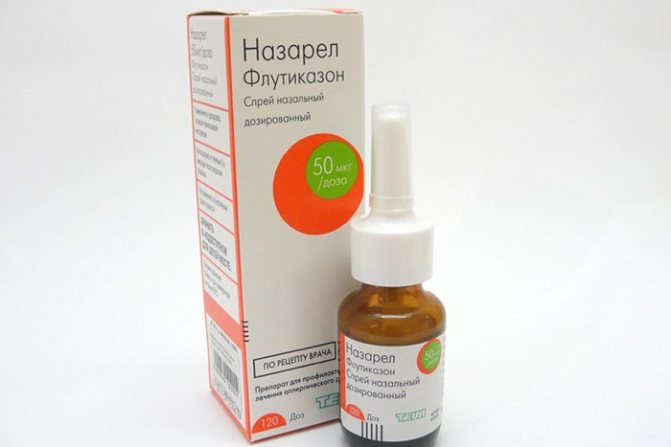
Popular drops for the common cold, such as Naphthyzin and Farmazolin, are more dangerous than modern steroid drugs. However, before using drops, be sure to consult an otolaryngologist.
Treatment methods for breastfeeding
Treatment of a runny nose during lactation should be carried out competently, since there are a large number of remedies that are not recommended for nursing mothers. Also, you cannot increase the indicated dosages and extend the period of taking the drug. Self-treatment is not recommended for more than 5-7 days, or at high temperatures. It is advisable for a doctor to monitor the condition of the nursing mother.
If a lactating mother does not experience other cold symptoms with a runny nose, then treatment can be reduced to facilitating nasal breathing.
Safe and effective drugs
Vasoconstrictors
Often a runny nose is accompanied by nasal congestion. Swelling of the mucous membrane occurs due to dilation of blood vessels. In this case, you can use vasoconstrictor medications that are allowed during breastfeeding. Doctors advise choosing drugs that do not contain preservatives. Such medications are stored for no longer than three months, but their composition is safer for a nursing mother.
Vasoconstrictor drops are made on the basis of xylometazoline, oxymetazoline and naphazoline. In pharmacies these drugs are known as:
- Nazivin.
- Otrivin.
- Nazol.
- Sanorin.
- Naphthyzin.
They cannot be combined with each other
It is worth noting that many drugs with a vasoconstrictor effect are divided into pediatric and adult dosages. When breastfeeding, it is better to choose baby ones
Although these medications have a low concentration of the active substance, they can still help relieve nasal congestion no worse than adult medications.
In this case, they will enter the baby’s body in breast milk in smaller quantities.
Vasoconstrictor drops are not recommended for use for more than three days, as addiction may occur.
Antimicrobial
Herbal-based medications can help cope with harmful microbes and bacteria. For example, such a remedy is Pinosol drops, which will help a lactating mother quickly cope with a runny nose. This remedy is allowed during breastfeeding, but there is a possibility of allergies.
Moisturizers
If a woman who is breastfeeding has a runny nose, then the most effective and safest method of treatment is the use of drugs such as:
- Aquamaris.
- Rhinostop.
- Physiometer.
- Dolphin.
- Rinostop and others.
The main component of these products is a sterile isotonic solution made from sea or ocean water. These medications are gentle and not at all dangerous if swallowed. They can also be used an unlimited number of times.
The drugs are used to cleanse the nasal passages and soften the crusts that have formed, reduce nasal congestion, eliminate itching and moisturize the mucous membrane. If a nursing mother purchases a saline solution with a nebulizer, she increases the chances of a speedy recovery. The main thing is to follow the instructions on the package. The remedy can also be prepared at home by adding salt to boiled drinking water. In addition, it is allowed to use sodium chloride solution, that is, saline solution.
Folk ways to combat the disease with hepatitis B
If a mother is afraid to use medications while breastfeeding, then you can use traditional methods. But you should understand that you will have to visit a doctor in any case and the use of any folk recipes must be consistent with him. If a runny nose bothers a mother while breastfeeding, then you can fight it in the following ways:
- A decoction of chamomile and eucalyptus, which is used to wash the nasal passages. This drug will eliminate pathogenic microbes and make breathing easier.
- Onions and garlic are powerful natural antibiotics. These components in the form of drops eliminate pathogenic flora and improve immunity.
- Honey is another great remedy to combat cold symptoms. It can have an anti-inflammatory effect and increase resistance. But it is worth remembering that honey is a strong allergen.
- Aloe can quickly cleanse the nasal passages and have an antimicrobial effect. Also an allergen.
If a nursing mother believes that treating a runny nose using only traditional methods will be safer, then this is not so. A huge number of natural substances can cause allergic reactions. In infants they are often severe, with swelling. Therefore, a lactating mother should not self-medicate and it is better to visit a specialist.
Below is a visual video about folk remedies for fighting the runny nose:
Antimicrobials
Preparations with herbal ingredients will help eliminate pathogens and reduce inflammation in the nasal mucosa. It is allowed to use Pinosol for a runny nose while breastfeeding.
Herbal medicines are compatible with lactation if the woman is not allergic to their components. If before conception the patient was allergic to eucalyptus, peppermint or pine oil, then you should not use medications that contain these substances.
When breastfeeding a child, it is prohibited to use products with essential oils (anise, cumin, tea tree) in case of hypersensitivity to them. If a woman is not predisposed to allergies, then ethers can be used when preparing solutions for inhalation. To do this, add 2–3 drops of oil to a container with warm water and breathe in the vapor for 10 minutes.

It is not recommended to use onions or garlic during breastfeeding. This is due to the fact that they dry out the mucous membrane and can cause a burn. As a result, less mucus is produced in the nasal cavity, and the body becomes less resistant to viruses.
Treatment
Below we will talk about traditional and folk remedies for treating colds during lactation. Remember, they can only be used after consulting a doctor.
At a temperature
You can also optionally use Ibuprofen or Paracetamol, which are excellent for treating fever.
These drugs are quickly eliminated from the body, which is especially important during lactation.
Please note that excessive use of these drugs can be harmful. And if your body temperature rises above 38 degrees, you need to seek qualified help.
Nasal drops will help cure a runny nose during breastfeeding
With a runny nose
To treat a runny nose, it is recommended to use plant-based nasal drops, for example, Pinosol or sprays containing sea water (Salin, Aquamaris). If the nose is very stuffy, then in this case it is recommended to use vasoconstrictor drops: Nazivin, Tizin.
It is forbidden to use such drops for a long time, as they are addictive, and in some cases cause atrophic rhinitis. Typically, the course of treatment with drops should not exceed 7 days. If you do not feel relief during this time, consult your doctor.
If you are bothered by a cough and discomfort in the throat, use Strepsils or Hexoral. Herbal syrups, including Doctor Mom and Chest Elixir, will help relieve acute attacks of pain in the respiratory organs.
If the disease is accompanied by the appearance of herpes, then in this case you can use L-Lysine, but before using it you should also consult a specialist.
Folk remedies
Traditional medicine will help cure colds during breastfeeding. Inhalations with boiled potatoes or essential oils are considered the safest.

If you decide to use ethers for inhalation, then eucalyptus is best suited in this case. Place 2-3 drops of oil into a special teapot with boiling water. After this, place a funnel made of cardboard or thick paper into the spout of the kettle. Inhale the vapors for 5-10 minutes. This procedure will clear the airways, eliminate runny nose and sore throat, and significantly improve your well-being.
Onions and garlic can cure respiratory ailments. But doctors do not recommend using these products during lactation, as they affect the taste of breast milk, as a result of which the newborn may refuse to breastfeed.
Mustard foot baths before bed are useful for colds. After the procedure, you should put on warm woolen socks and wrap your feet in a blanket.
Rubbing the body with a weak solution of vinegar will help cope with the temperature, as well as improve overall well-being. In this case, you should drink warm liquids, such as chamomile tea, often and generously.
Moisturizers
With the help of preparations containing sea water or saline solutions, it is possible to increase the humidity of the mucous membrane, as a result of which the body becomes more resistant to microbes. To cleanse the nasal sinuses of a nursing mother, it is allowed to use Salin, Aquamaris, Nosol. These products help thin out thick mucus and speed up its removal.
To treat rhinitis, prepare your own saline solution. To do this, dissolve 25 g of sea salt in 220 ml of warm boiled water. However, caution must be taken during the procedure. Do not use a pressure syringe to rinse your sinuses. This is fraught with penetration of the solution into the auditory tube and middle ear, as a result, otitis media develops. The liquid is instilled into each nostril with a pipette or a spray bottle is used.
Folk remedies
The most popular and effective treatment for rhinitis is inhalation. A solution with eucalyptus oil, pine buds, and oregano is used. You can also drip menthol oil (3 drops each) or warm beet juice into the nasal passages.

Salt is used to eliminate swelling of the mucous membrane. To do this, the grains are heated in a dry frying pan, wrapped in a multilayer bag and applied to the bridge of the nose.
Some mothers use homemade onion drops to eliminate the main symptoms. To do this, finely chop a medium onion and mix it with 30 ml of sunflower oil. After a day, this product is ready for use. Lubricate the nasal cavity with the solution after cleaning it.
Preventive measures
To prevent the appearance of symptoms of rhinitis, a lactating woman should follow the following rules:
- Try not to get too cold. Banal hypothermia most often provokes rhinitis. This is explained by the fact that under the influence of cold, immunity decreases and the body becomes more susceptible to infections.
- Avoid contact with people who have a cold. Viruses are transmitted by airborne droplets. Therefore, you should stay away from a person who is sneezing or coughing, as the virus spreads several meters.
- Avoid crowded places during outbreaks of acute respiratory infections and flu. For the same reason, it is prohibited to travel on public transport.
- Strengthen the body's defenses. Consult your doctor about strengthening your immune system. For this purpose, you need to eat right, give up bad habits and take multivitamin complexes (only for medical reasons). After all, strong immunity quickly eliminates pathogenic microorganisms.
- Remember to stay safe when caring for someone with a cold. If a nursing mother is caring for a patient, she needs to wear a gauze mask, ventilate the room daily and use a humidifier. For additional protection, the nasal sinuses are treated with oxolinic ointment at intervals of 4 hours.
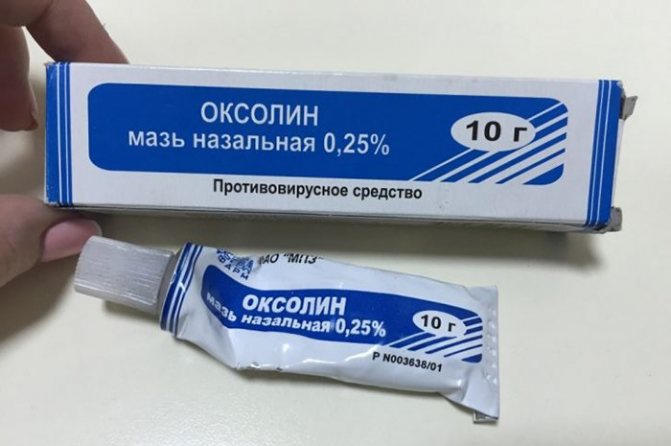
Thus, rhinitis during lactation, which is accompanied by other symptoms of acute respiratory infections, requires complex treatment: bed rest, drinking plenty of fluids, ventilation, medications, folk remedies.
Before using any medications and folk recipes, you must obtain permission from an otolaryngologist. Only a doctor can tell you which drugs are safe during lactation. Subscribe to our VKontakte group
How to properly treat a runny nose?
Having found out that a runny nose is not a separate disease, but serves as one of the signs of acute respiratory infections, it is natural to assume that its treatment is carried out comprehensively. Let's consider the main components of therapy:
- Bed rest. Aimed at easing the course of the disease and shortening its duration. It is necessary to maintain it for 2-3 days to prevent the disease from worsening.
- Drink plenty of fluids. Increase the amount of liquid consumed: tea, compote, still water. Drinks will help remove toxins formed during the active activity of viruses and improve the general condition of a nursing mother.
- Humid and fresh air. When staying indoors for a long time, try to maintain normal humidity and regularly ventilate the rooms. The humidity level cannot be lowered below 60%, otherwise the nasal mucous membranes will experience discomfort from drying out, and the mucus will become more difficult to separate, interfering with the functioning of the immune defense. For the heating season, use a household humidifier.
- Maintain the air temperature in the house around +22 degrees.
- Decreased body temperature. A cold during lactation often causes a rise in temperature (we recommend reading: a cold in a nursing mother: how and what to treat?). There is no need to rush to take antipyretics if the thermometer shows less than 38.5. It is irrational to knock down a slight increase, since this is an indicator of your body’s fight against infection. The immune system produces antibodies that kill viruses. Temperatures above 38.5 degrees will be relieved by paracetamol or ibuprofen. Both drugs have an analgesic effect, relieve headaches and colds. In addition, ibuprofen also has an anti-inflammatory effect.






